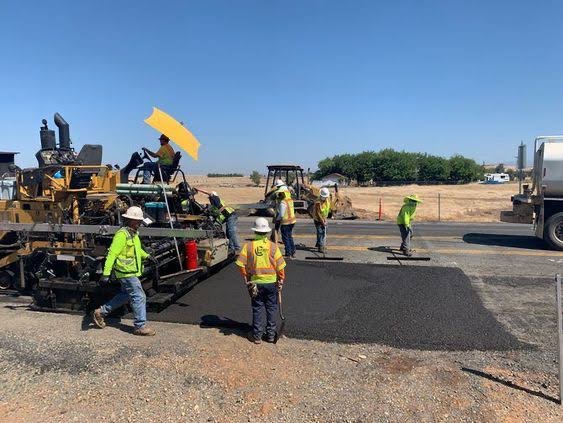Afeez Akinfola Oyinloye is redefining Nigeria’s tech landscape as the founder of MacTech O.A Nigeria Enterprises. Since 2014, he has led groundbreaking projects, including the 2022 Osun State payroll system, saving ₦750 million, and WakaForMe Ride, with 5.2 million users. In this interview, Oyinloye discusses his leadership, Nigeria’s e-governance challenges, and his global ambitions.
What inspired you to tackle public sector tech with MacTech?
I saw Nigeria’s public sector struggling with inefficiency—ghost workers, bloated budgets. My BSc from the University of East London taught me tech could fix this. In 2014, I founded MacaTech to deliver solutions like APIs and apps. By 2021, we’d hit a ₦250 million turnover, serving 300+ clients. The Osun project was my chance to make governance transparent.
The Osun payroll system saved ₦750 million. What challenges did you face?
Bureaucratic resistance was huge—some officials feared biometric verification would expose fraud. Data silos and unreliable power, with outages hitting 70% of our workdays, slowed us down. I led MacaTech to build a fingerprint-based system with offline capabilities, finishing by December 2022. Eliminating 1,500 ghost workers was tough but restored public trust, as media houses noted.
Nigeria’s e-governance push is growing. What’s holding it back?
Nigeria’s digital governance is promising—think NIN and BVN systems—but only 40% of agencies use integrated tech, per 2024 NITDA data. Corruption, low digital literacy, and patchy internet (50% coverage) are barriers. MacaTech’s Osun system shows secure platforms can work, but we need national policies to scale trust and infrastructure.
How can African governments better support local tech founders?
Policy consistency and digital infrastructure are key. We need reduced broadband costs, stable electricity, and startup-friendly tax policies. For instance, a national digital identity system would ease KYC integration for apps like WakaForMe. Governments should also co-invest in incubators, tech parks, and R&D hubs to democratize access beyond capital cities like Lagos or Nairobi.
How did you scale MacTech to such impact?
It’s about focus. I built a lean team, reinvested profits, and partnered with firms like Hybridsoft for ERP solutions. For Osun, I personally oversaw integration, ensuring scalability. MacTech’s 300+ clients, from SMEs to Naija Spirit Multimedia, trust us because we deliver—our voting system for Osun Ultimate Awards generated ₦300 million. Scaling meant solving real problems, not chasing hype.
How has your leadership style evolved scaling from a startup to a company with national relevance?
I’ve grown from being a solo founder to building teams and delegating high-level decisions. We implemented agile sprints, standups, and KPIs to maintain focus. I use OKRs (Objectives & Key Results) to align our tech and business teams. As we scaled, I moved into more strategic roles—like fundraising, governance, and forming government partnerships—while still staying close to product decisions.
What’s your vision for Nigeria’s digital future?
Nigeria needs a unified e-governance framework—think Estonia’s digital ID model. We must bridge the internet gap, with 70 million Nigerians offline, and boost cybersecurity; 60% of government systems lack robust protection. My Osun system and WakaForMe Ride’s 2,450+ jobs show tech can drive trust and growth if we invest in infrastructure and skills.
How can African startups think globally from day one?
By solving problems that exist in multiple markets—like transport, payments, or SME tools—and designing scalable architectures. For WakaForMe, we built a language-agnostic backend and modular ride features that can adapt to new geographies. Also, partnerships with UK, EU, or Asian tech players bring knowledge transfer and credibility for regional scaling.
What’s your view on the VC landscape in Africa?
In 2024, Africa raised $5.5B in tech funding—but 75% went to just four countries, and 60% to fintech. Non-fintech founders like myself often bootstrap or raise family funding. We need to diversify capital flow into sectors like mobility, edtech, healthtech, and GovTech. Local angel networks and diaspora funds are stepping up, but equity terms must protect founders.
Why are you looking to expand into the UK tech ecosystem?
The UK is a hub for ethical AI, mobility tech, and fintech integration. I see it as the perfect place to refine WakaForMe’s data capabilities—like predictive ride demand using AI—and build B2B solutions for NHS logistics or university shuttle systems. I’m also looking to partner with UK founders on mobility or GovTech products targeting Africa and other underserved markets.
What’s next for you?
I’m eyeing the global market and the UK, where I can build AI-driven governance tools or smart city apps. The Osun system could streamline UK councils, like Birmingham’s, saving millions. My YALI 2024 award fuels my drive to merge Nigeria’s grit with global tech hubs.






